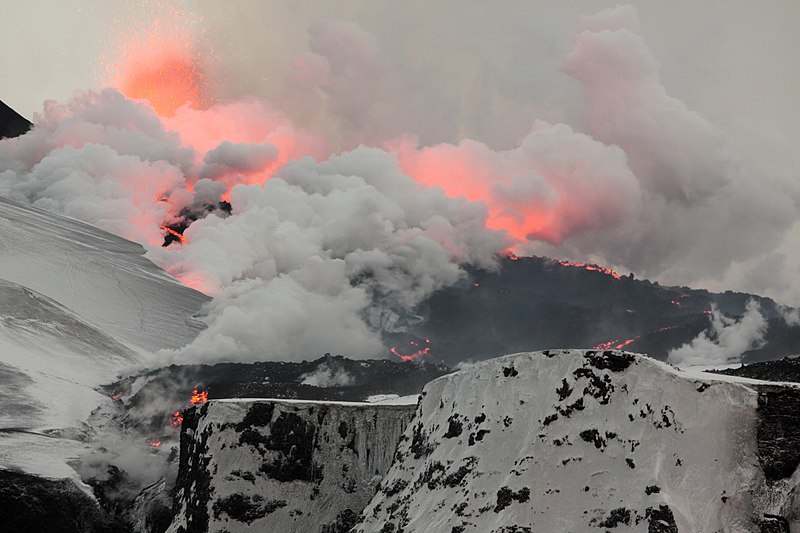Professor Brian Toon, chair of CU-Boulder's atmospheric and oceanic sciences department, compared the Icelandic eruption to the popping of a champagne bottle cork. When the pressure is released by breaching the rock "cork," gases bubble out, spewing tiny rock particles into the air like champagne droplets. Such rocks threaten the safety of airliners.
But the amount of sulfur dioxide spewed by the volcano so far poses no threat to world climate as determined by an instrument aboard NASA's Aura satellite. An apparently larger eruption of an Icelandic volcano in 1783, however, caused some climate issues in Europe by creating smog-like conditions in London that partially blocked out the sun and persisted through the summer months.

The eruption in Iceland is unlikely to have a global impact.
(photo credit: wikipedia)
The destination and duration of the current volcanic plume depends primarily on weather conditions like rain and winds. The plume should get washed away by rain as it continues to drift east, and likely will have no effect on the United States. Fortunately, the plume also is below the
stratosphere, where volcanic gases can have global effects because of a lack of rain there prohibits the removal of volcanic material.




Comments